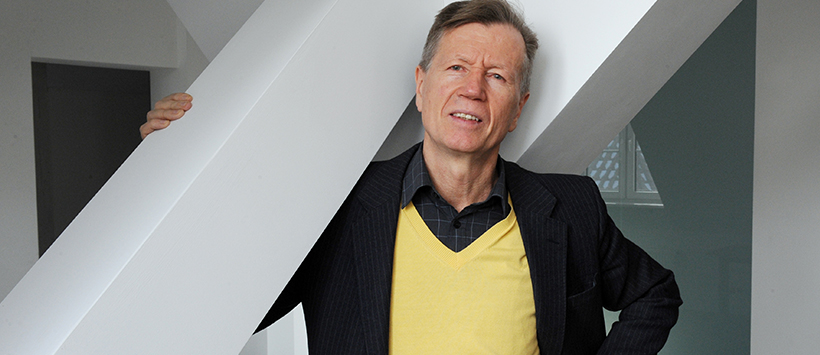Polish Institute of Advanced Studies (PIASt)
On the 2nd January 2017, the Polish Institute of Advanced Studies (PIASt) started its activities within the structure of the Polish Academy of Sciences. It aims at supporting advances in knowledge and research innovation and contributing to the promotion of scientific development in Poland with the ambition to complement the national institutional and scientific landscape.
 professor Przemysław Urbańczyk, PIASt acting Director (photo: J. Ostałowski)
professor Przemysław Urbańczyk, PIASt acting Director (photo: J. Ostałowski)
The Institute will focus on the wide diversity of the Humanities and Social Sciences, while remaining open to cross-cutting projects in an interdisciplinary perspective, and thus creating a multidisciplinary and international learning community for these disciplines.
The objective of the PIASt is to promote scientific and intellectual exchange and creating international and multidisciplinary learning community of researchers who gather for an academic year to reflect and exchange ideas. Prospective fellows, released from their usual teaching obligations and administrative activities, pursue their projects in an environment that stimulates reflection and innovation. They will benefit from the stimulating environment of a multi-disciplinary and international community of scholars.
While supporting a vision of the freedom of research, the Institute will focus its invitation policy on individual scholars who need free time to concentrate on research. The fellowships are mainly offered in the fields of the humanities and social sciences without exclusive disciplinary or geographic priorities and without targeting any specific scientific objectives.
The PIASt will contribute to scientific outreach by promoting various activities (e.g. guest lectures and open seminars) to ensure that the knowledge has an impact not only on scholarly communities, but also on public and private sector, as well as civil society organizations (e.g. cultural centres) and media.
*
The Institute will start with a first group of internationally renowned fellows, who will be invited for one semester (February– July 2017). They will set high scientific standards of the Institute and contribute to establishing its visibility amongst the national scientific institutions. Later the PIASt will operate based on an open annual call for applications, aiming at 120 researchers-months per academic year. Individual residence fellowships of 5 or 10 months will be offered for both, promising early career (postdocs) and senior researcher offers.
The Institute will disseminate its fellowship offer worldwide inviting foreign scholars or Polish scholars who have spent less than a year in Poland over the past three years. Even though the Institute will facilitate the reintegration of emigrated Polish scholars, it will not impose any requirements regarding the command of the Polish language, the existence of local collaborations, or previous research on Poland, although the relevance of the specific scholarly environment will be assessed and possible interaction with local researchers will be welcome.
The evaluation procedure will follow international standards with applications being reviewed by a body of peers. Competitive selection process will be supervised by the international Scientific Advisory Board that will reward confirmed and/or promising individual excellence proved by a CV and a research project). Research proposals should demonstrate applicants’ interest beyond narrow disciplinary specialization. Applicants must also prove their international commitment and have a record of quality publications.
The PIASt will foster intergenerational scientific dialogue by composing annual groups of fellows as a multidisciplinary research communities involving both senior scholars (2/3) and postdoctoral scholars (1/3). Successful residents will be offered stipends aligned to the conditions offered by the Network of European Institutes of Advanced Study (NetIAS) and adjusted to the cost of living in Poland.
*
The ambition of the PIASt for the near future is to join various IAS networks. It will integrate the EURIAS Fellowship Programme by joining its Consortium composed of 16 European IAS and apply for the NetIAS membership. The Institute will establish key partnerships with selected national institutions to guarantee a co-funding of invited scholars. The Institute will also promote an active hosting policy towards European research projects, which will contribute to its scientific activities as well as to the funding of part of its fixed costs.
Polish Institute of Advanced Studies - PIASt
of the Polish Academy of Sciences
tel. +48 22 504 82 80
ul. Długa 26
00-238 Warsaw, Poland
